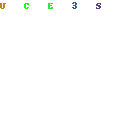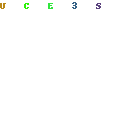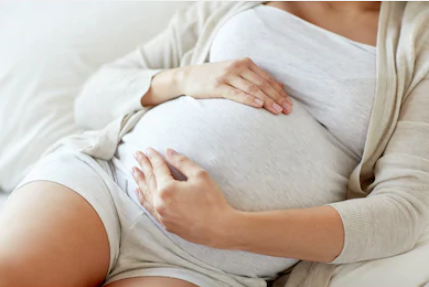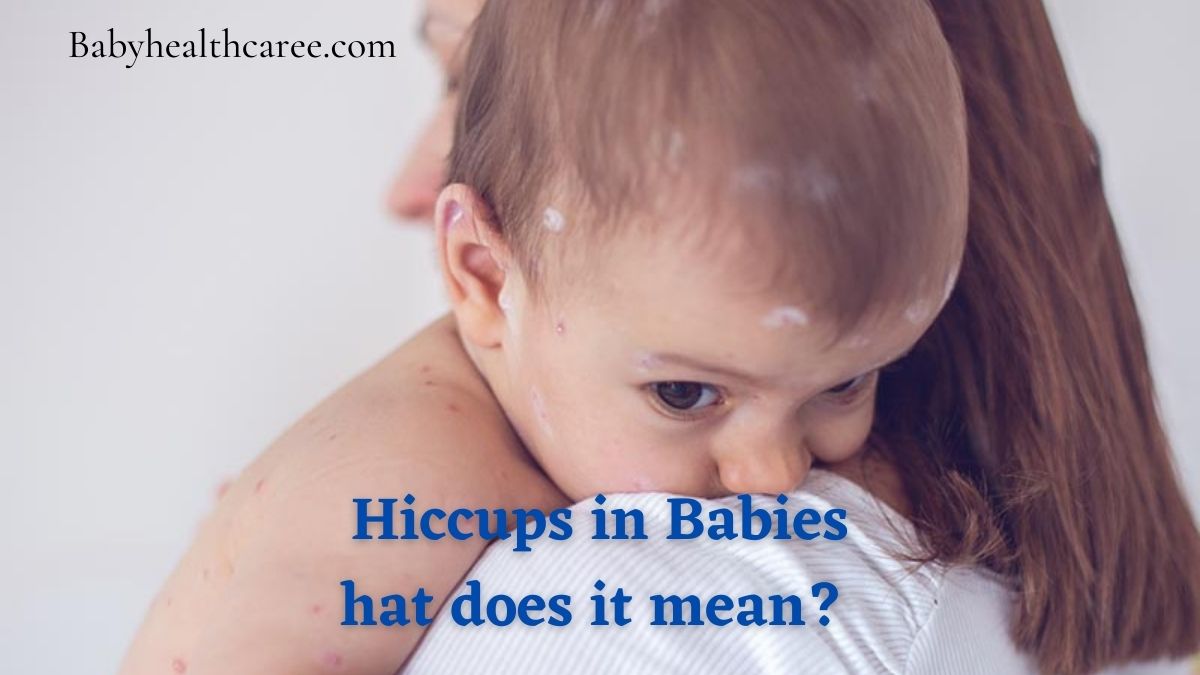We all are familiar with hiccups, and this bizarre sound is quite common for babies under 12-month-old age. Do you really know that babies can hiccup even in the womb? Isn’t it cool?
Having baby hiccups is a general situation and not necessary to concern with any health provider. It is just a part of our lives that we experience in the pregnancy.
Baby hiccups is a temporary condition that stops within a few minutes. Observe if your baby is hiccupping from the last half to 1 hour then you to concern with a pediatrician anyhow. Normally a baby hiccup when he/she is being fed by mothers; dissimilarly they may hiccup without any reason.
According to medical science stopping hiccups is not important at all but if still, you want to then you may give some mother feed or water.
Fetal Hiccups or baby hiccups in the womb:
Bib – Bib – Bib! So what do you know about fetal hiccups? seems you are not ready to believe that a baby can hiccup even in the womb but yes this is true! Fetal hiccups are such types of small movements that mothers can feel in their belly sometimes.
This type of hiccup happens when they start practicing breath in the womb. A baby inhales breaths and a small amount of amniotic fluid enters in their lungs. It makes growing diaphragm contracts and makes baby hiccups.
According to the doctors, the fetal hiccup is a normal condition and nothing to be worried about. Often pregnant women feel this type of tiny movement in their third trimester of pregnancy. A sonographer is also can note baby hiccups while making an ultrasound of a pregnant woman after 28 weeks of pregnancy.
However a fetal is able to hiccup in the first and second trimester of pregnancy but a mother can’t feel this in earlier weeks so, the third one trimester is applicable.
Literally, it just feels like a rhythmic movement that mothers feel while it is quite hard to distinguish that is it your baby’s kick or he is hiccupping. You may realize your baby’s hiccups randomly in a day or night or you may not realize once in your pregnancy.
It is all as per on natural breath practicing cycle we cannot insist on a fetal to make hiccups.
How to Stop Fetal Hiccups?
As we know fetal hiccups are normal there is no rocket science in it. Fetal hiccup is similar to the lighter kicks of your baby so, it may disturb you some way. Especially when you are doing something special or having a nap!
Unfortunately, like an adult, you cannot stop your fetal hiccups by giving him/her some water so, you have to tolerate it for a while.
Whatever! Suggested by some experts walking around, changing positions and having some water or milk can make your baby relax in the womb until any new incentive cheers baby to change gears.
For me I would like to suggest you should embrace your baby hiccups for some time; after all, you are a mother and let your little one do if want to do. I hope you have experienced a lot of new things in your body in pregnancy so, why not one more?
Brown says! “Eventually it gets to a point where you won’t notice them much.” (Now if we could only say the same thing about those constant food cravings.)
When to expect hiccups?
A mother can start realizing baby hiccups in the second and third trimester averagely. Often women feel this type of jerky movement of their baby in the 6th month of pregnancy. As every woman has own pregnancy cycle so; it is not necessary that you should feel this movement in your 6th month.
As I already told you that fewer babies hiccup many times in a day while rest hiccups once in their womb time and others do not make any hiccups. Few pediatricians accept that fetal hiccups are a good sign that makes sure baby lungs are growing well and the baby has good swallow power.
Keep in mind that a baby can hiccups in the womb till 10 minutes or more so, there is no more need to concern the doctor. Get relax and have this soothing experience of pregnancy in a light way!
How can I differentiate between baby hiccups and kicks?

Well if this is your first pregnancy then it will be quite hard to distinguish between baby hiccups and kicks for you. Dissimilarly if this is your 2nd or 3rd then it will be quite easy to know.
- A notable way to make a difference is the time that you feel this movement. Like your baby will kick only 1 to 2 minutes while he/she is able to hiccups up to 1 minute normally.
- Secondly, if you are feeling uncomfortably in your baby movement it means your baby is kicking.
- Observe when you change your position nicely then hope your baby will stop kicking while; the hiccups may last longer even after changing position.
- Baby kicking is quite a hard movement then a mother feels in the belly whether baby hiccup is a jerky rhythmic movement that he makes.
Why Do Babies Get Hiccups in the Womb? (causes)
Similar to the kids and adults babies can hiccup in the womb; it is not meant that you have finished your lunch faster and then your baby hiccups in your belly. There are some unusual causes that make your fetal hiccups.
Especially when a baby trying to do something new in the womb then having side effects like hiccups.
A fetal hiccup declares that he/she is having a lot of milestones in the womb that signifies the baby is on the track and making his entrance clear to this world. Make sure still the baby will require some time to come but surely he will!
Let us see what types of developmental changes of baby that might cause fetal hiccups.
Inhaling amniotic fluid:
A fetal is able to inhale and exhale amniotic fluid; this sour taste womb water can make a baby hiccup in the womb. Actually, this type of hiccup is considered as a good pregnancy sign means your baby has a fine diaphragm structure. It may start within 10 weeks of pregnancy but you are unable to feel in earlier weeks.
Activation of the nerve:
If you research then you will know that Brandi Ring (MD, an obstetrician, and gynecologist at Mile High OB-GYN in Denver) concluded that “fetal hiccups indicate the activation of the nerve that controls the diaphragm.”
The fetal hiccup confirms that the brain and spinal cords are interacting well and doing an appropriate job at a certain time. Similarly, baby hiccups mean your baby is fetching neurological growth that is enough to survive in the womb this is definitely good news!
Reflexes in the womb:
Not only inhaling and exhaling but a baby can even practice suckle, yaw and suck fingers in the womb. These are few adorable activities of a fetus that he/she often does before birth and undoubtedly these all responsible for baby hiccups.
Contractive diaphragm:
Generally, fetal hiccups are comparable with the kids and adult hiccups. Fetal hiccups morally caused by the unexpected contraction of diaphragm (a muscle that separates lungs and abdomen internally.) amniotic fluid is often liable for a contractive diaphragm.
Umbilical cord:
Here we have our last and serious cause for baby hiccups. When a baby’s neck gets wrapped with an umbilical cord then a fetus starts making hiccups. Usually, this type of situation occurs within the second and third trimester of pregnancy (when a baby becomes naughty in the womb.)
When Should You See A Doctor?

In pregnancy, a lot of mums are able to understand different patterns of hiccups. Look, when you observe any type of irregularity in your baby hiccup by timing then you must concern with your doctor.
A baby can frequently hiccup due to less/no air supply. When you recognize an intensive change in hiccups then you should concern a health provider immediately. Surely your doctor will suggest a Doppler ultrasound and will prescribe some medicines.
Through this Doppler ultrasound, the doctor will better understand the fetus’s condition. This is why the doctor says that do not take lightly your baby’s movements through entire pregnancy.
Expecting weeks for fetal hiccups:
As I already told that felling fetal hiccups is optional. Few women can feel this women and rest can feel but could not recognize them. According to medical science, 16 to 20 weeks are possibly considered for baby hiccups.
Few ladies describe their feeling as popcorn popping; some tells they feel like a flying butterfly for a few moments while many women are quite unsure of recognizing baby hiccups and kicks. In fact, the majority of women do not fetal hiccups throughout the pregnancy period.
Second and third trimesters are best for feeling baby hiccups in which you can easily recognize. A lot of mothers likely start their baby’s movements in the second trimester that are considered as hiccups similar to the jabs, kicks, and rolls.
A very first time in pregnancy a woman can feel sensation around 20 weeks while for the 2nd and 3rd time she can feel baby movement earlier in 16 weeks. Baby hiccups will be clearer to you in the last trimester of pregnancy.
As a baby grows, as easily his/her hiccups and other movement will be clearer from outside. You might feel your entire belly jerking or bounce during fetus hiccups. Desperately the numerous hiccups of a baby are not meaning you are nearer to the maternity. On the other hand, if you feel any kind of maternity sign while hiccupping then you should go to your doctor anyhow!
For the few next hundred words here we have answered a few frequently asked questions asked by new mothers!
Frequently Asked Questions in
Are fetal hiccups a sign of labor?
Absolutely not! Fetal hiccups are a natural movement that often babies experience in the womb. We cannot consider fetal hiccups as impending labor. Even the frequency of fetal hiccups will be decreased week by week.
How long do fetal hiccups usually last?
5 to 8 minutes are enough for fetal hiccups; extremely it can last for 15 minutes. If you are feeling baby hiccups from the last 20 minutes or more then concerning to your doctor will be good for your baby’s health.
Is it normal to have fetal hiccups for more than 20 minutes?
Well, 20 minutes is a long time for fetal hiccups you cannot deliberate this time as normal. In this condition, you will absolutely need your doctor because it might be your baby need scan for reflux. In pregnancy, you should be alert for your baby’s movement.
Try avoiding all types of extra tensions and track your baby’s movement all the time. During pregnancy being calm and relax will surely make you attentive. In the majority cases baby hiccups in the womb are common but rarely could it be severe due to mother’s negligence.
Conclusion:
In pregnancy, a woman should track baby movement anyhow. According to the doctors paying attention to the baby movement (kicks, rolls, jabs, and hiccups) is good at all though you can track your baby’s good growth.
A fetal hiccup can be felt in 2nd and 3rd trimester of pregnancy whether it can be last up to 3 to 5 minutes approximately. When you realize your baby is hiccupping from the last 20 minutes means it is time to be concerned with the doctor.
In medical terminology, the baby hiccup is one kind of movement that often baby does in the womb. Experience baby hiccups in the womb is could be fun for you! Thus try to recognize it in your middle weeks of pregnancy.



